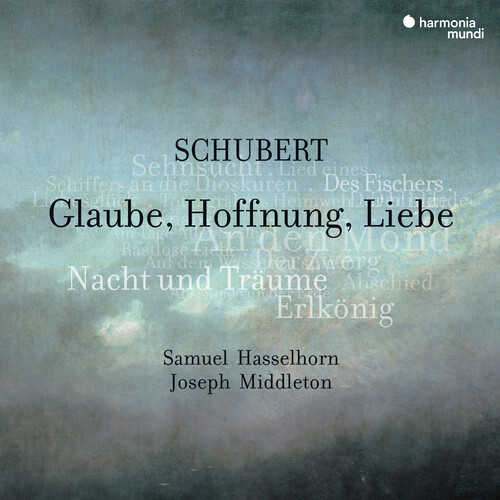Show results for
Deals
- 4K Ultra HD Sale
- Action Sale
- Alternative Rock Sale
- Anime sale
- Award Winners Sale
- Bear Family Sale
- Blu ray Sale
- Blues on Sale
- British Sale
- Classical Music Sale
- Comedy Music Sale
- Comedy Sale
- Country Sale
- Criterion Sale
- Drama Sale
- Electronic Music sale
- Golden Age of Hollywood sale
- Horror Sci fi Sale
- Kids and Family Sale
- Metal Sale
- Music Video Sale
- Musicals on Sale
- Mystery Sale
- Naxos Label Sale
- Page to Screen Sale
- Paramount Sale
- PBS on Sale
- Rap and Hip Hop Sale
- Reggae Sale
- Rock
- Rock and Pop Sale
- Rock Legends
- Soul Music Sale
- TV Sale
- Vinyl on Sale
- War Films and Westerns on Sale

Schubert: Glaube, Hoffnung, Liebe, Lieder
- Format: CD
- Release Date: 5/6/2022

Schubert: Glaube, Hoffnung, Liebe, Lieder
- Format: CD
- Release Date: 5/6/2022
- Label: Harmonia Mundi
- UPC: 3149020943854
- Item #: 2475871X
- Genre: Classical
- Release Date: 5/6/2022
CD
Price: $18.98

Get it between
Mon. Sep 15 - Tue. Sep 30
Deliver to
Product Notes
His debut recording devoted to Schumann offered a brilliant opportunity to discover the name of Samuel Hasselhorn, a young baritone deeply invested in the art of lieder. With his collaborator Joseph Middleton, he now turns to Schubert, in an insightful program evoking some of the themes dear to the Viennese master of song: nature, night-time, parting, absence, and death. Both essential and less familiar songs are featured side by side in this poignant depiction of profound self-reflection that can rank among the most moving examples of what the Romantic temperament has ever produced.

